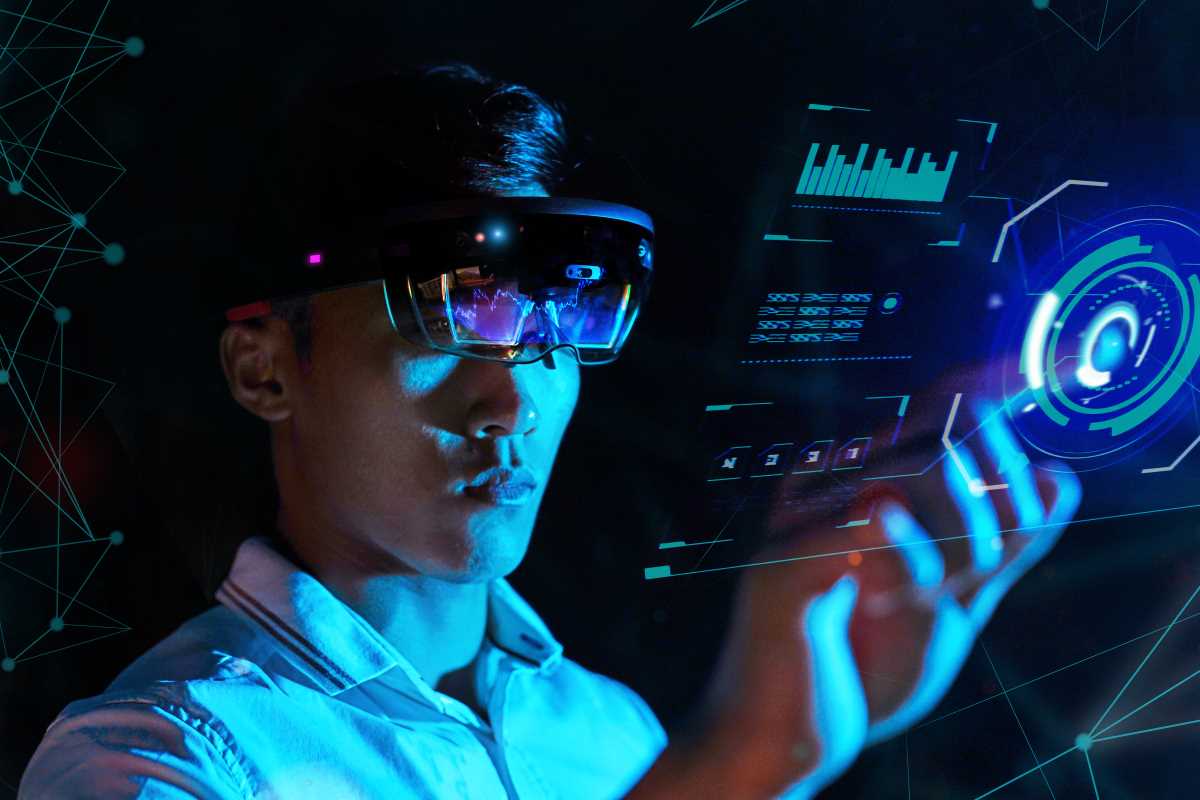When you think about jobs in AI (artificial intelligence), you probably imagine coders, data scientists, and engineers working away at algorithms and models. But what if I told you that psychology majors, who study human behavior and mental processes, are increasingly stepping into the AI world? That’s right! Psychology is becoming vital in teaching AI how to better understand and interact with us humans.
AI systems like virtual assistants, chatbots, and recommendation engines are clever, but they have fundamental limits. They’re designed to process data, not to truly comprehend the subtle dynamics of human emotions, biases, and culture. Psychology majors are helping to bridge this gap, making AI more intuitive, empathetic, and human-friendly.
If you're a tech-savvy professional looking to expand your skills, or someone fascinated by psychology and AI, here’s a deep look at how these fields overlap and why it’s an exciting area to explore.
Why Psychology Matters in Human-AI Interaction
At its core, human-AI interaction revolves around communication and engagement between people and technology. Whether it’s a chatbot handling customer service requests or an AI system curating recommendations for your streaming platform, the goal is to make interactions seamless and effective. But here’s the catch: as advanced as AI systems are, they don’t instinctively "understand" humans. They lack the ability to grasp emotions, cultural differences, or situational context on their own.
This is where psychology plays an indispensable role. Psychology majors bring critical insights into how humans think, feel, and behave. This expertise is essential in designing AI that feels relatable, empathetic, and easy to use. For instance, ensuring that a mental health app delivers genuinely supportive interactions or that an AI tutor’s responses motivate and engage students.
Ultimately, integrating psychology into AI design is the key to creating systems that go beyond mere functionality to actually delight, support, and resonate with users.
How Psychology Plays a Role in AI Design
Psychology majors are adding value to the AI field in countless ways. Here are a few key contributions they’re making, along with real-world examples and emerging opportunities.
1. Improving User Experiences
Have you ever found yourself yelling at your virtual assistant because it just doesn’t get what you’re trying to say? (Looking at you, Siri!) Frustrations like these stem from gaps in how AI systems interpret user commands and expectations. Psychology majors, with their expertise in human behavior, analyze these interactions to make them smoother, more intuitive, and even enjoyable.
For example, a team designing a virtual assistant might test how users feel about different tones of voice. Should it sound formal and efficient or warm and conversational? These psychological insights help tailor AI systems to meet users’ emotional needs.
A great real-world example is Duolingo, the popular language-learning app. The AI-powered chatbot on Duolingo encourages users to practice conversations. It uses a positive and supportive tone, tapping into motivational psychology to make learning approachable and fun. Without input from psychology, these chatbots could feel awkward or discouraging.
Improving user interactions extends beyond entertainment and convenience. Consider healthcare, where quick, efficient communication can have life-altering consequences. Ensuring that an AI system conveys empathy and understanding during a medical consultation isn’t just a design preference; it’s a critical need. Psychology informs how that empathy can be encoded into the system, from word choice to vocal tone.
2. Helping AI Understand Emotions
AI systems, by default, process data, not emotions. But human communication is rich with emotional signals—from the tone of our voice to subtle facial expressions and the words we choose. Psychology majors are helping to train AI systems to detect and interpret these cues, making interactions more responsive and emotionally intelligent.
Take mental health apps like Woebot, which use AI to provide real-time emotional support. Woebot is designed to recognize distressing language patterns in a user’s messages and respond in ways that guide them toward relief and problem-solving. This is only possible because psychologists have programmed the system with a deep understanding of emotional cues and intervention strategies.
Another exciting development is the integration of emotion recognition into customer service. Historically, customers interacting with chatbots or automated services have been met with generic, often unhelpful responses. But emotion-aware AI can identify when a customer is upset or frustrated based on their word choices and tone. These systems can de-escalate tense situations by offering calmer, more compassionate responses.
Even in entertainment, emotional AI is making waves. Video game developers are experimenting with designing characters that react dynamically to players' moods and decisions, creating deeper, more immersive experiences.
3. Tackling Unconscious Bias in AI
AI systems depend on large datasets for training, and here’s the problem: these datasets often carry the biases present in human society. Without checks and balances, AI systems can inherit and perpetuate discrimination or stereotyping. Psychology majors are uniquely equipped to tackle this problem.
For instance, a hiring platform powered by AI might unintentionally favor male candidates over female ones based on historical data riddled with gender bias. Psychologists collaborating with data scientists can identify such biases and work to minimize them. This involves looking closely at both the data and the algorithms to ensure more equitable outcomes.
One high-profile example came from a study of facial recognition software, which demonstrated biases in accurately identifying people of different racial groups. Teams with a psychological perspective are better positioned to highlight such disparities and push for data and algorithms that lead to fairer results.
This work isn’t just about ethics. It’s about ensuring the tech product serves its purpose effectively for a diverse audience. Bias damages trust in AI systems, and psychology offers the tools to address and reduce these blind spots.
4. Making AI More Ethical
One of the thorniest challenges in AI is navigating ethical dilemmas. AI systems are increasingly involved in decisions that affect human lives, from job recommendations to medical diagnoses and even autonomous driving. Without a clear ethical framework, these systems can make decisions that are morally problematic.
Psychology majors play a critical role in shaping these frameworks. They understand the principles of moral psychology, helping to devise guidelines for how AI should behave in ethically complex situations.
For example, self-driving cars must sometimes make split-second decisions in unavoidable accident scenarios. Questions arise, such as whether to prioritize the safety of passengers or pedestrians. These are not just technical questions; they are profoundly human ones. Psychologists weigh in on how people view these dilemmas and what solutions feel justifiable to society.
Ethical AI also extends to more everyday interactions. For example, should an AI chatbot push a product that may not be in the user’s best interest simply because it boosts profits? Understanding consumer psychology can help companies strike a balance between their goals and the well-being of their users.
Why This Matters for Young Tech Professionals
The human-AI relationship is only going to grow as technology integrates further into our daily lives. From the coffee maker that knows your morning preferences to AI tools that assist in complex workplace tasks, the ability to create human-centric AI will become more valuable. Aspiring tech professionals who gain an understanding of psychological principles can set themselves apart in a field increasingly looking for soft skills alongside technical expertise.
Even if you’re not a psychology major, developing skills like user-experience design, emotional intelligence, or ethical decision-making can give you a competitive edge. Employers look for people who can bridge the gap between technical design and human-centered outcomes.
Ultimately, no one wants to interact with AI that feels like a brick wall. Successful companies will be those that prioritize empathetic, user-friendly technologies.
How to Get Started
Interested in blending psychology and AI? Here are actionable ways to get involved:
- Take classes in psychology or human-computer interaction (HCI): Focus on topics like behavioral science, cognitive psychology, and design thinking.
- Participate in interdisciplinary projects: Collaborate with students or professionals from psychology and tech fields. You’ll learn how to combine their insights with technical processes.
- Stay updated on the ethical side of AI: Read books, attend seminars, or follow thought leaders discussing how to develop responsible technologies.
- Experiment with open-source AI applications: Try modifying chatbots or emotional recognition tools to improve user interactions. Understanding these systems hands-on is invaluable.
The growing role of psychology in human-AI interaction is a testament to the fact that technology isn’t just about machines and algorithms. It’s about people. Building AI that truly "gets" us as humans is no easy task, but psychology is becoming the linchpin in this effort.







